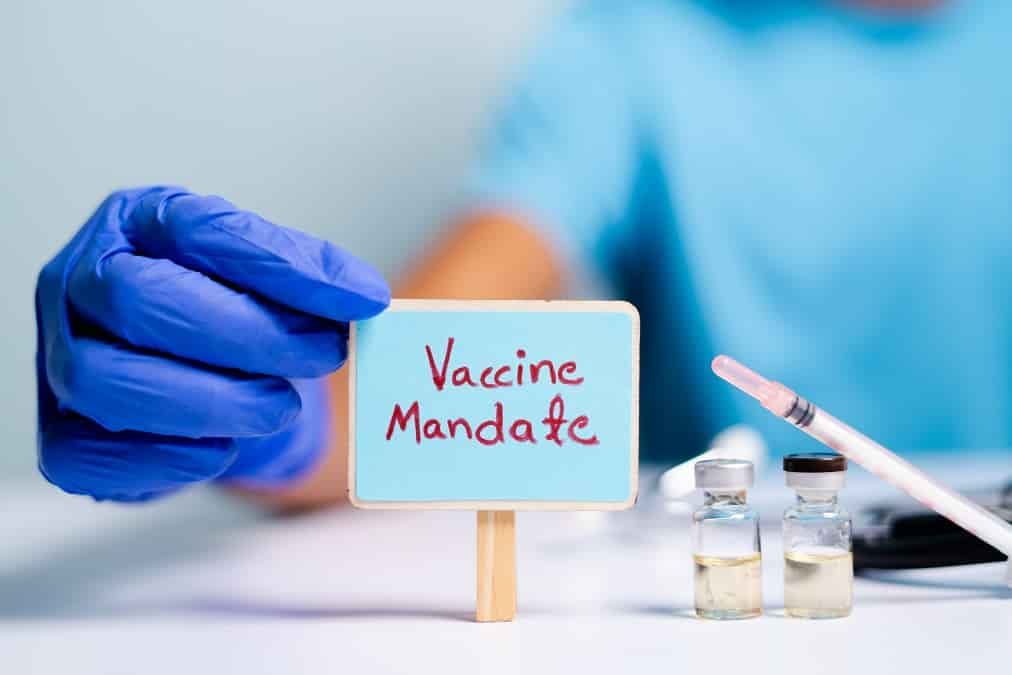Official data from NHS England has revealed that 85,000 NHS staff have yet to receive a COVID vaccination.
The figures also show that an additional 41,000 staff have only had one jab.
The news comes at a difficult time for the health service, with Omicron cases and staff sickness putting additional strain on an organisation already operating beyond capacity. At the same time, there are growing fears that the government’s spring deadline for frontline workers to get jabbed risks a mass exodus of staff from the service.
Unless staff have a medical exemption they will need to take their first jab by 3 February and their second by 31 March to be fully vaccinated by the 1 April deadline.
A spokesperson for The Workers Union said: ‘This is a set of very challenging issues that requires understanding on all sides. We would never claim workers must get a vaccination – that would be an intolerable infringement of the individual right to say no. Our policy has been – and always will be – to help workers make informed decisions about what’s right for them.’
Despite opposition to the mandatory vaccination policy, the government has indicated that it plans to press on regardless. The requirement will only affect front line workers who have direct contact with patients.
The Workers Union Says…
The mandatory vaccination policy has its detractors, many of whom say that it risks marginalising staff who are hesitant to take the vaccine and heaps more pressure on those who have had their jabs. While there is undoubted merit in that argument, we would like to see less scaremongering and more emphasis on educating staff about the vaccination. We cannot – and must not – stigmatise those that are still considering their options – they often have legitimate concerns that they believe have not been satisfactorily answered. Instead it is up to all parties to make the risk/benefit ratio abundantly clear.
A casual glance at NHS England’s regional vaccine uptake figures makes the case for better messaging even more urgent. 10 percent of workers in London, for example, are yet to have a first jab. When set against a figure of 3.9 percent in the South West, it gives a clear indication of regional variance.
While we must redouble our efforts to ensure that the message is getting through to hard to reach areas, we must also think constructively about the staff who refuse to take the vaccine. There must not be a vengeful backlash against them when other options, such as redeployment away from the front line, may be possible. It is, after all, in the interests of patients and the health service to prevent a talent drain at a time when the NHS needs these brilliant, caring people the most.




